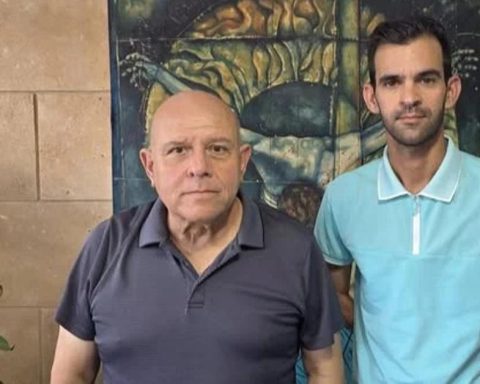HAVANA, Cuba.- How many generations of Cubans have never fallen in love or danced under the influence of that great singer who was Charles Aznavour? As Nat King Cole, Frank Sinatra or Paul Anka, the French interpreter, of Armenian origin, was a phenomenon of his time and left his mark for posterity. Aznavour was the last crooner of the French song.
Although they told him that he was very ugly, very small and that he could not sing, Charles Aznavour persevered in his desire to be an artist and today he is recognized as one of the great male voices of the 20th century. Many labeled him the French Sinatra, but unlike the American, Aznavour composed his own lyrics, in which he often criticized taboos such as marriage, homosexuality, the (in)ability of men to talk about their emotions, sex and depression.
Aznavour comfortably plunged into territory others avoided, or treaded with extreme caution. His honesty and courage made him an effective campaigner for the recognition of the killing of Armenians by the Ottoman Empire during World War I as genocide.
Parallel to his successful artistic career, he served as Armenian Ambassador to Switzerland and permanent delegate to the United Nations, credentials that he deserved not only for his activism, but also for having himself been the son of parents who managed to escape that massacre, taking refuge in France.
He liked to define himself as an actor who sang, rather than a singer who performed. He appeared in more than sixty films and wrote more than 1,300 songs throughout his long life, where there was never room for boredom or discouragement.
The son of immigrants, Charles Aznavour had been introduced to art from an early age, dancing and singing with his sister in the small restaurant that their parents had opened in Paris, and which served as a refuge for Jews and Armenians persecuted by the Gestapo during the German occupation, in the Second World War. His courage was honored, years later, by the Israeli government.
Young Charles was not a diligent student, so he quit school at an early age to pursue the path of art. Although he himself claimed to have regretted such a decision all his life, luck smiled on him after the war, when he opened a concert for the rising star Édith Piaf.
With her he went to the United States, where he worked as her manager for eight years. She then began, not without difficulties, her solo career. By the sixties he had conquered the Big Apple and was adored by multitudes.
Considered the quintessential ambassador of French song, throughout his career he recorded dozens of albums and won major awards. He sang in French, English, German, Spanish and Italian. Stars like Barbra Streisand, Bob Dylan, Nina Simone, Plácido Domingo, Johnny Mathis, Sting and a very long etcetera have sung their songs. Among his most famous songs are “Venice without you”, “Sur ma vie” and “La Mamma”.















